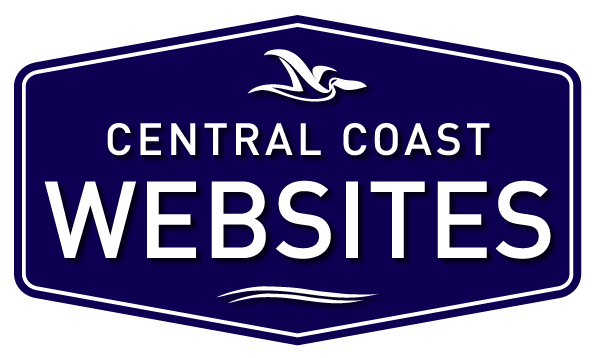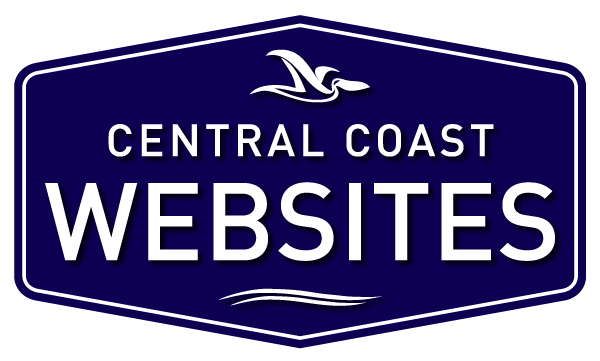The Role of Local SEO in Business Visibility.
Local Search Engine Optimisation (SEO) is a crucial component for standing out in a competitive market, as it elevates your business’s presence on search engine results pages (SERPs) for location-specific queries related to your industry. Fine-tuning your website and online material for particular keywords is the key to leveraging local SEO effectively.
If you’re new to the concept of local SEO, this guide aims to demystify its importance, its functions, and the steps to initiate it—whether you’re tackling it independently or seeking the expertise of a well-established local SEO agency like Central Coast Websites.
What is Local SEO?
Local SEO focuses on fine-tuning your business’s digital footprint to heighten your profile in targeted geographical search results, be it for a specific city, region, or neighbourhood. This strategy is indispensable for enterprises operating from a physical address, such as eateries, brick-and-mortar retailers, and local service providers. Given the surge in mobile-based searches and the trending use of “near me” queries, the importance of local SEO has expanded, even benefitting larger, less geographically anchored businesses.
Investing in local SEO not only amplifies your online visibility but also directs more relevant web traffic your way, thereby boosting sales and revenue. It also serves as a bridge between online engagement and physical store visits. With 75% of individuals not venturing beyond Google’s first page of results, securing a higher ranking exponentially increases the odds of potential customers discovering your business.
Local SEO is a game-changer, especially for small and medium-sized businesses aiming to capture the attention of customers right in their backyard. Central Coast Websites is committed to making sure local businesses don’t just survive but thrive in their communities.
Importance of Local SEO for Small Businesses.
Let’s face it: not every business is shooting for global domination. For many small businesses, the local community is the bread and butter of their operation. Local SEO ensures that your business website shows up in local search results. When someone searches for “best coffee shop near me” or “Central Coast plumbers,” you want to be the one they find. Being visible in local search results dramatically increases foot traffic, phone calls, and overall customer engagement.
The importance of local SEO has skyrocketed in recent years. The introduction of Google Business Profile in 2014 has helped to provide a foundation for your local SEO strategy to be built around. Nearly half of all Google queries today are local searches (46%). Google started providing more results for geographically related searches based on proximity, relevance and prominence, making local SEO essential for your business.
The Central Coast has a growing population, and engaging in a local SEO strategy for your business will help to increase your overall visibility and get you ranking for keywords and search terms that consumers are using to find your products and services.
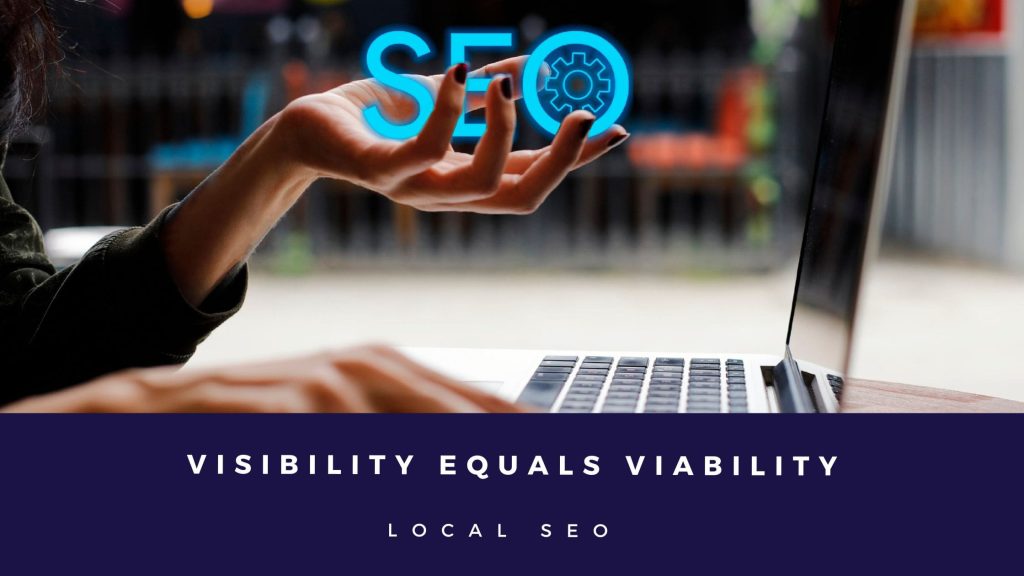
3 Core Pillars of Local SEO.
Local Search Engine Optimisation (SEO) might seem like a complex endeavour, but when broken down, it’s built on three foundational elements that search engines like Google prioritise: Prominence, Relevance, and Proximity. Understanding these factors can help you formulate a local SEO strategy that maximises your chances of ranking high in local Search Engine Results Pages (SERPs).
Prominence
Prominence isn’t just about being well-known; it’s about establishing both online and offline credibility. The more prominent your brand, the better your chances are for appearing in local search results. Google measures your prominence by analysing various indicators such as your online citations, the quality and number of backlinks to your website, and customer reviews. Increasing your brand’s prominence means enhancing its visibility and reputation through a well-rounded strategy that could include online marketing, public relations, and customer engagement.
Relevance
Relevance in the context of local SEO is all about aligning your business offerings with what users are searching for. Google aims to provide the most pertinent information based on user queries. To improve your relevance, you should focus on selecting the right keywords that closely match what your potential customers might search for. Moreover, optimising your website content and completing your business profiles online help Google understand what your business offers, thereby increasing your chances of being considered relevant.
Proximity
The final pillar, Proximity, addresses the geographical distance between your business and the person conducting the search. Generally, people want options that are close by when searching for a particular product or service. In local SEO, your business’s location becomes a significant ranking factor. Ensuring your business address is accurately listed across all online platforms can improve your standing in local search results, making it easier for nearby customers to find you.
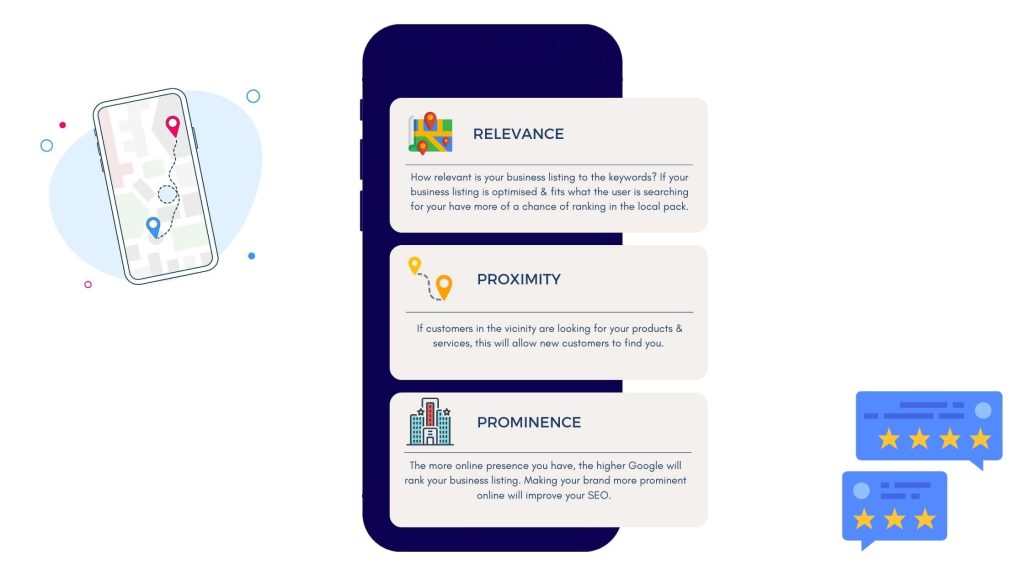
Why is Local SEO Crucial for Your Business?
When you’re searching for a nearby restaurant or in need of urgent plumbing services, what do you do? If you’re like the majority, you’ll turn to a search engine for answers. Such searches are inherently local—you’re not interested in a pizza place or a plumber several states away.
For businesses catering to specific geographical regions, excelling in local SEO is non-negotiable. This ensures that when someone in your service area conducts a relevant search, your business pops up. If your business depends on local clientele or has physical locations, then enhancing your local online visibility should be at the forefront of your digital strategy. Web design and SEO is essential for your small business.
Amplified Presence in Local Search
When someone performs a location-based query or includes local terms like the name of a city or “near me,” search engines recognize the local intent. If your website isn’t locally optimised, you’re missing out on a plethora of potential opportunities. Local SEO increases the likelihood that your business will appear prominently in local search results, connecting you with customers right in your area.
Precision Targeting of Local Market
Creating content around generic keywords might drive traffic, but not necessarily the kind you can capitalise on. If you run an event planning business in Boston, for example, visibility in Denver doesn’t translate to more business. Focusing on local keywords helps you rank better in local searches, attracting an audience that can actually benefit from your services when they need them the most.
Boost in Foot Traffic and Retail Sales
Search for local services, and you’ll often find a Google 3-pack highlighting businesses in your vicinity. This prime digital real estate is not just near the top of the search results but also provides key details like location, making it convenient for potential customers to find you. Effective local SEO strategies can boost foot traffic, phone inquiries, and even in-store sales.
Increased Conversion Rates
By consistently appearing in relevant local searches and providing high-quality content, you achieve several objectives. You not only attract more attention to your business but also guide potential customers through their decision-making journey. This, in turn, fosters a more engaged audience and contributes to higher conversion rates over time.

Who Can Benefit From Local SEO?
Local SEO isn’t solely the domain of small, community-based businesses. While it’s a crucial tool for enhancing the reach of a smaller operation, it holds immense value for a broad range of business models. Here’s a look at who can gain the most from implementing a strong local SEO strategy:
Physical Retail Outlets and Restaurants
Whether you’re a stand-alone store or part of a national chain with multiple locations, local SEO is essential. Retailers and dining establishments with brick-and-mortar locations depend on local search visibility to attract foot traffic from nearby customers.
Service-Oriented Businesses
For businesses that offer specialised services within a specific geographic area—think plumbers, electricians, and home cleaning services—local SEO is the key to being discovered by consumers in their service zones.
Franchised Operations
If you operate a franchise with various branches, each individual location needs to hone its local SEO. Doing so will optimise the online presence for each site, drawing in local customers and enhancing regional profitability.
Digital Businesses with Local Services
Purely online businesses can also tap into the benefits of local SEO, provided there’s a local element to their offerings. For example, an e-commerce platform offering free local delivery or pickup services can considerably boost its local customer base through optimised local search strategies.
Smaller Businesses and Boutiques
Smaller, locally-owned businesses like mom-and-pop shops have a unique appeal, often drawing a dedicated local following. By investing in local SEO, these small businesses can compete more effectively with larger, more established competitors, and potentially carve out a larger market share due to their localised allure.
Virtually any business with a region-specific focus can significantly benefit from local SEO. By refining your online presence for local search, you not only draw in more customers but also bolster your online reputation and revenue streams.
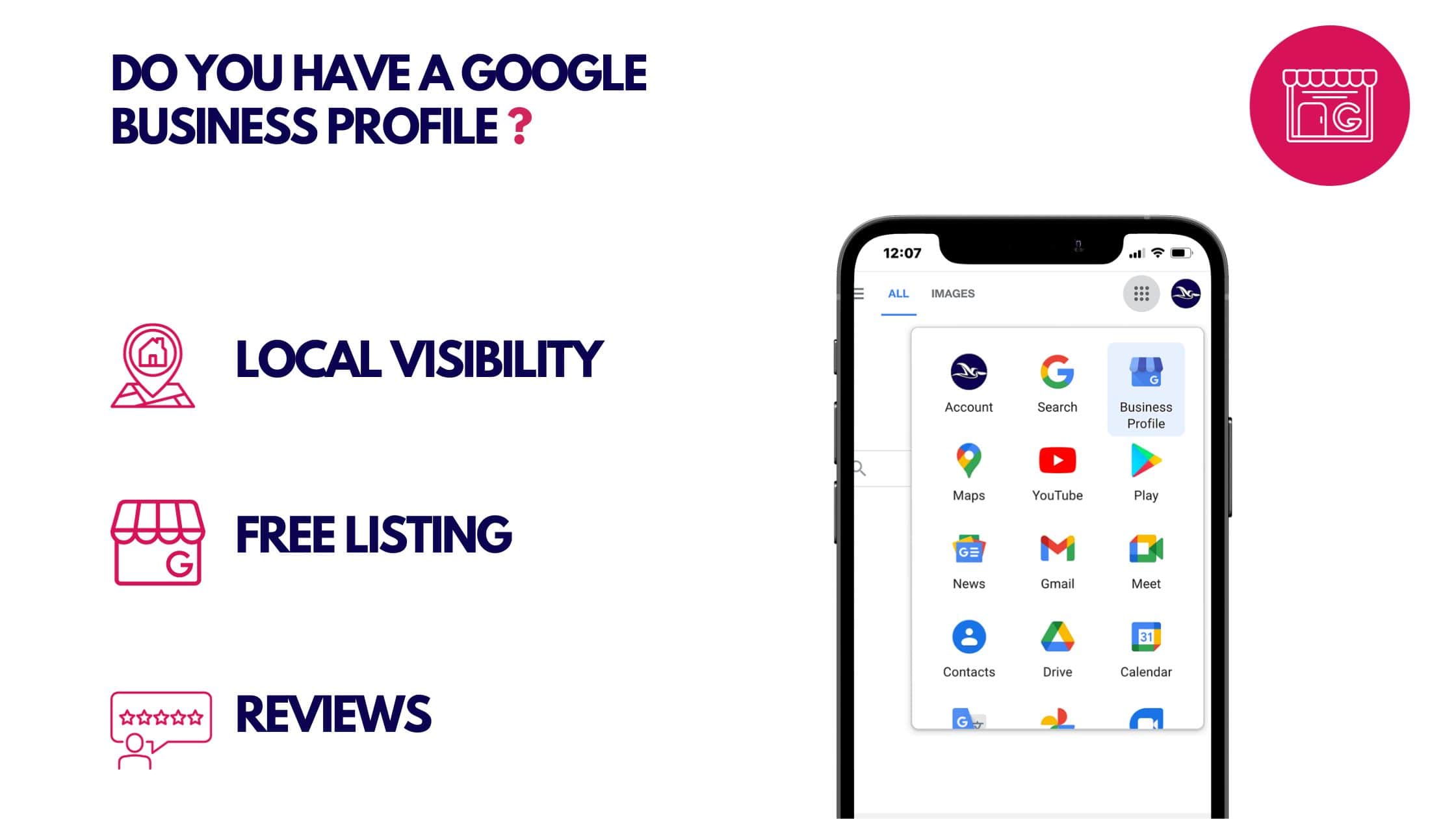
Getting Started with Local SEO.
Local SEO can seem like a labyrinth of complexities with many separate elements to SEO, but a well-planned strategy can steer your business toward success in local search rankings. While Google employs a distinct algorithm for local search results, distinct from its “traditional” SEO algorithm, comprehending the differentiating factors can offer your local business a competitive edge.
Local Keyword Research
Keywords are the phrases or terms commonly used in search queries. These could be singular terms or more specific “long-tail” keyword phrases. For example, a user may search for “plumber,” “commercial plumber,” or “commercial plumber Central Coast.” To pinpoint what potential customers in your locality are searching for, local keyword research is indispensable. This crucial initial step provides the framework for your local SEO strategy, guiding you in focusing on search terms relevant to your products or services and regional locale.
On-Page SEO
After identifying your target keywords, it’s essential to integrate them into your website’s architecture, including title tags, meta descriptions, header tags, and content. This allows your website to rank more favourably in local search queries. A key part of this is ensuring that technical aspects, such as page speed and proper indexing, are also attended to for optimal search performance.
Google Business Profile
Formerly known as Google My Business, Google Business Profile (GBP) is a free tool that enables you to manage your online visibility across Google platforms, including Search and Maps. A well-maintained GBP listing not only provides essential business information to potential customers but also serves as a vital cog in your local SEO wheel. To optimise your GBP listing, consider adding vivid images, geotagging photos, and updating your product/service list among other tasks.
Reviews and Ratings
Garnering positive reviews significantly impacts your digital reputation and influences local search rankings. Proactively asking satisfied customers for reviews and responding earnestly to feedback, both positive and negative, can shape your online image favourably.
Local Citations and NAP Consistency
Submitting your business to local directories might seem pedestrian but can dramatically improve your off-page SEO. Equally crucial is the consistency of your Name, Address, and Phone Number (NAP) across online platforms. Inconsistent or incorrect NAP information can detrimentally affect your local search performance.
Local Link Building
In local SEO, links from local businesses and organisations act as potent signals for search algorithms. Unlike traditional SEO, where the focus is often on high-authority links, local SEO benefits immensely from region-specific links.
Community Involvement
Being active in your local community can offer untapped opportunities for local links. Event sponsorships, local meetups, and partnerships with local bloggers can all yield valuable local backlinks.
- Event Sponsorships: Contribute to a local event and secure a backlink from their website.
- Local Meetups: Use your premises for a community gathering and gain a link from the meetup group’s site.
- Blog Partnerships: Collaborate with local bloggers who can provide authentic write-ups about your business in exchange for a product or service.
In summary, implementing a comprehensive local SEO strategy can be a game-changer for your local business. It enhances your online visibility, draws more local customers, and ultimately, increases revenue. Armed with these strategies, you’re well on your way to local SEO success.
Measuring SEO Success.
You’ve done the groundwork—optimised on-page elements, worked on off-page tactics, and even focused on local SEO. But how do you know if all these efforts are yielding results? Enter the world of SEO analytics, where numbers tell the story of your success or areas for improvement. At Central Coast Websites, we strongly believe in not just implementing SEO strategies but also tracking their performance to make data-driven decisions. So, let’s discuss how you can measure the success of your SEO initiatives.
Google Analytics and Other Tools
Google Analytics is the go-to tool for tracking various metrics related to your website’s performance. It provides a treasure trove of data, from user demographics to specific actions users take on your site. But we don’t stop there; other advanced tools like SEMrush, SEO Powersuite and Ahrefs also offer deeper insights into your SEO performance, including keyword rankings and backlink profiles. These analytics tools are crucial in helping you understand how well your SEO strategies are paying off.
Key Performance Indicators (KPIs)
While numerous metrics can be monitored, it’s essential to concentrate on the Key Performance Indicators (KPIs) that genuinely matter to your business. Here are some critical KPIs to keep an eye on:
Organic Traffic
If your SEO strategies are effective, one of the first things you’ll notice is an increase in organic traffic. This is the number of visitors landing on your website via unpaid search results. Consistent growth in organic traffic usually correlates with higher visibility and ranking on SERPs. And remember, it’s not just about quantity but also about the quality of the traffic you attract.
Bounce Rate
The bounce rate measures the percentage of visitors who leave your site after viewing only one page. A high bounce rate could indicate that your site isn’t convincing enough to keep visitors engaged. Although a variety of factors can contribute to a high bounce rate, poor SEO optimization could be one of them. Lowering your bounce rate often results in higher engagement and conversions.
Conversion Rate
Ultimately, the point of all this optimization is to turn website visitors into paying customers or clients. Conversion rate indicates the percentage of visitors who take a desired action, such as making a purchase, signing up for a newsletter, or filling out a contact form. It’s a clear signal that your SEO strategies are not just driving traffic but are attracting the right kind of visitors who are likely to convert.
Measuring the success of your SEO efforts is more than just a numbers game. It’s about aligning those metrics with your business objectives to create a seamless, effective strategy that drives real-world results.
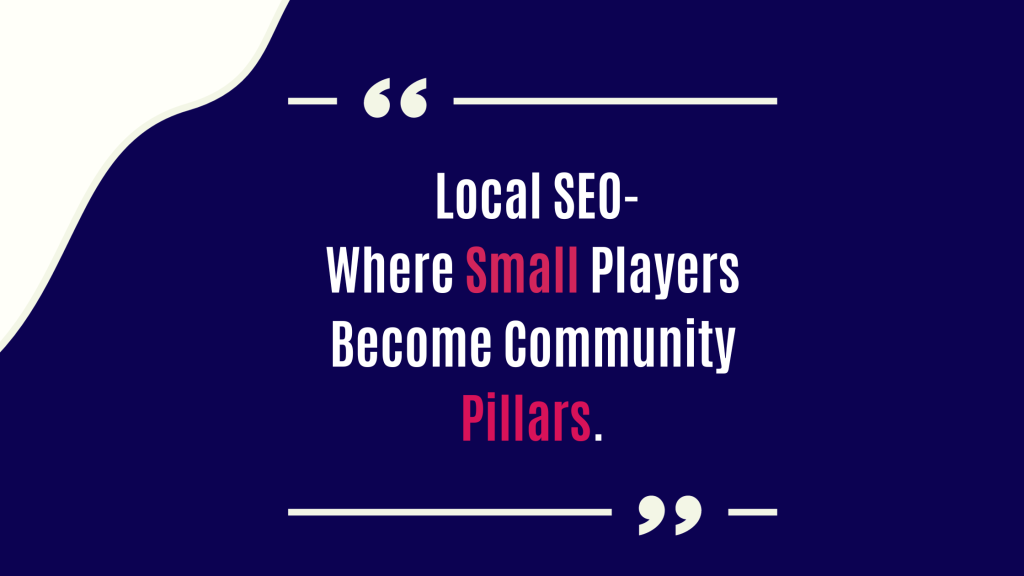
The Importance of Local SEO for Tangible Business Growth.
Investing in local SEO is more than just a business decision; it’s a strategic move that can significantly elevate your online visibility, driving increased traffic and sales. Moreover, it offers an opportunity to engage prospective customers by disseminating meaningful content and resources.
For many businesses, especially smaller establishments, the primary hurdle isn’t deciding whether to invest in local SEO, but rather how to formulate and execute an effective strategy that yields tangible outcomes. At Victorious, we understand the unique challenges that small businesses face in navigating the complex landscape of local SEO.
If you’ve been pondering the impact a well-executed local SEO strategy could have on your business but are unsure about taking the plunge, our seasoned team of experts is ready to guide you. With a proven track record in mastering local SEO techniques, we have assisted numerous local businesses in establishing and bolstering their digital footprints, translating into sustainable and profitable results.
Eager to propel your business and digital reputation to the next level? Discover more about our specialised local SEO services or arrange a complimentary SEO consultation today.
